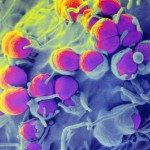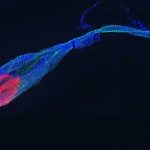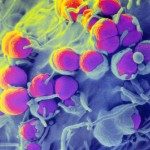Link to Pubmed [PMID] – 20720186
Blood 2010 Nov;116(18):3526-36
In vivo targeting of C-type lectin receptors is an effective strategy for increasing antigen uptake and presentation by dendritic cells (DCs). To induce efficient immune response, glycosylated tumor-associated Tn antigens were used to target DCs through binding to macrophage galactose-type lectin (MGL). The capacity of Tn-glycosylated antigens-and the multiple antigenic glycopeptide Tn3 therapeutic candidate vaccine-to target mouse and human MGL(+) DCs are demonstrated, especially regarding dermal DCs. In mice, MGL(+) CD103(-) dermal DCs efficiently captured and processed glycosylated Tn antigen in vivo, inducing a potent major histocompatibility complex (MHC) class II-restricted T-cell response. Intradermal immunization with Tn-glycopeptides induced high levels of Th2 cytokines-even in the presence of unmethylated cytosine-phosphate-guanosine-and was associated with increased expansion of the germinal center B-cell population. Therefore, MGL acts as an efficient endocytic antigen receptor on dermal DCs in vivo, able to prime Tn-specific T- and B-cell responses. Moreover, even in the absence of adjuvant, immunization with this glycosidic Tn-based vaccine induced high levels of anti-Tn antibody responses, recognizing human tumor cells. In vivo DC-targeting strategies, based on Tn-MGL interactions, constitute a promising strategy for enhancing antigen presentation and inducing potent antibody response.







